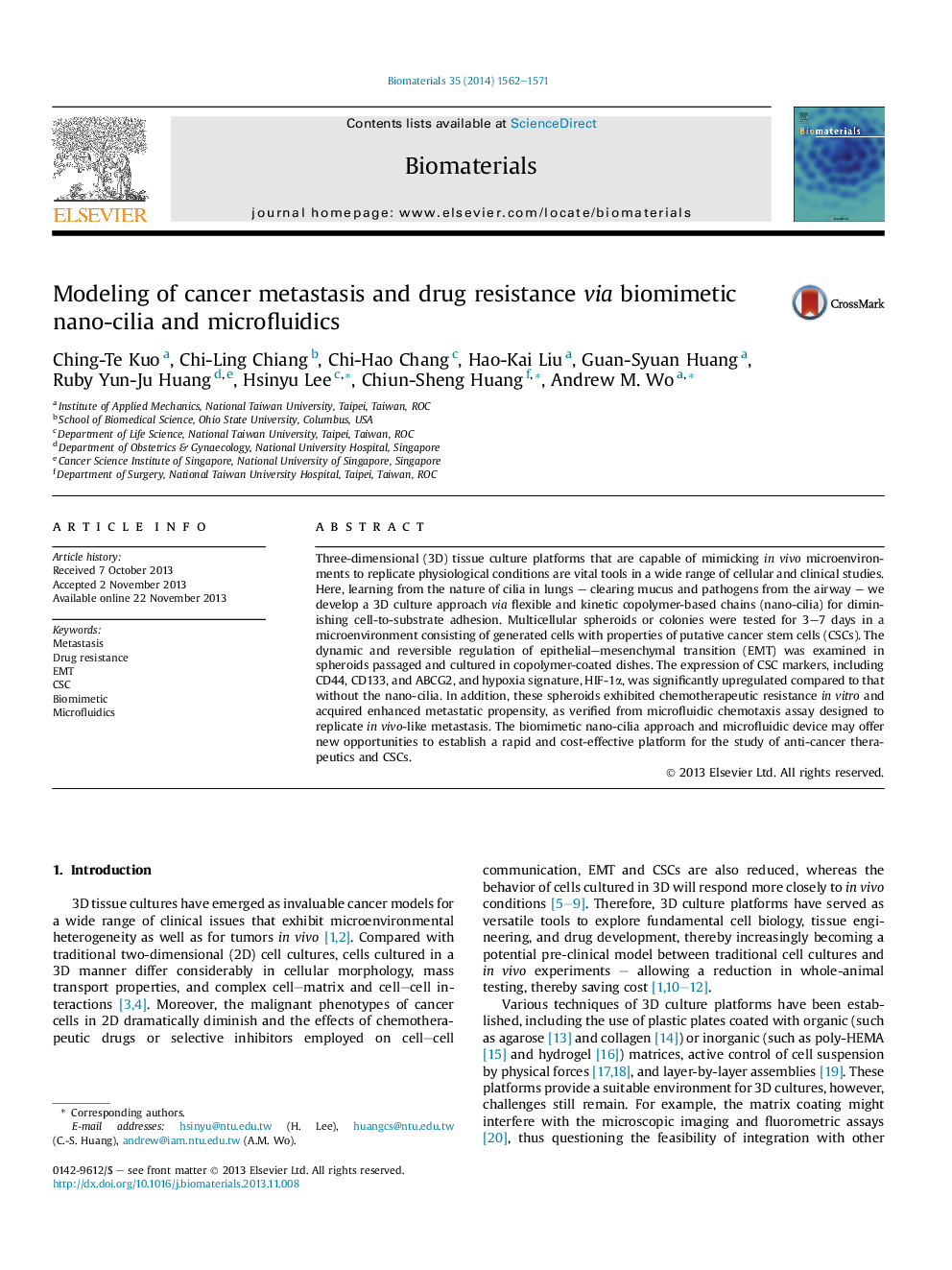| Article ID | Journal | Published Year | Pages | File Type |
|---|---|---|---|---|
| 10227448 | Biomaterials | 2014 | 10 Pages |
Abstract
Three-dimensional (3D) tissue culture platforms that are capable of mimicking in vivo microenvironments to replicate physiological conditions are vital tools in a wide range of cellular and clinical studies. Here, learning from the nature of cilia in lungs - clearing mucus and pathogens from the airway - we develop a 3D culture approach via flexible and kinetic copolymer-based chains (nano-cilia) for diminishing cell-to-substrate adhesion. Multicellular spheroids or colonies were tested for 3-7 days in a microenvironment consisting of generated cells with properties of putative cancer stem cells (CSCs). The dynamic and reversible regulation of epithelial-mesenchymal transition (EMT) was examined in spheroids passaged and cultured in copolymer-coated dishes. The expression of CSC markers, including CD44, CD133, and ABCG2, and hypoxia signature, HIF-1α, was significantly upregulated compared to that without the nano-cilia. In addition, these spheroids exhibited chemotherapeutic resistance in vitro and acquired enhanced metastatic propensity, as verified from microfluidic chemotaxis assay designed to replicate in vivo-like metastasis. The biomimetic nano-cilia approach and microfluidic device may offer new opportunities to establish a rapid and cost-effective platform for the study of anti-cancer therapeutics and CSCs.
Related Topics
Physical Sciences and Engineering
Chemical Engineering
Bioengineering
Authors
Ching-Te Kuo, Chi-Ling Chiang, Chi-Hao Chang, Hao-Kai Liu, Guan-Syuan Huang, Ruby Yun-Ju Huang, Hsinyu Lee, Chiun-Sheng Huang, Andrew M. Wo,
